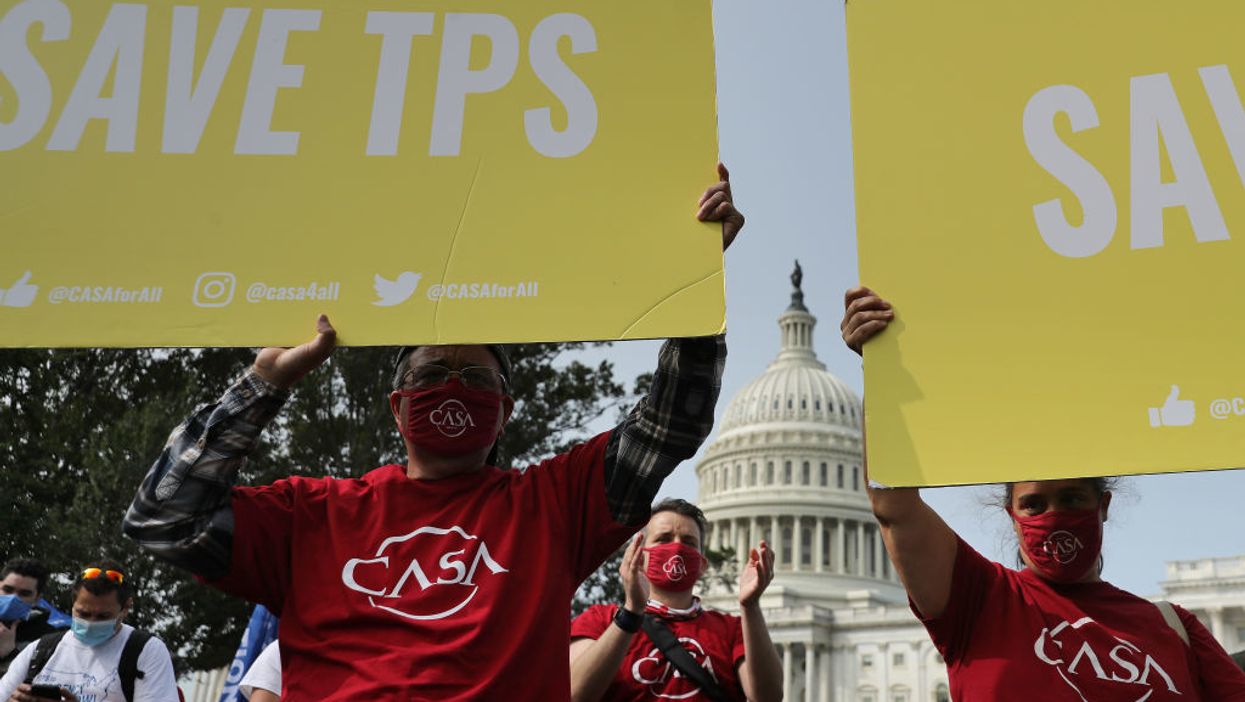
Photo by Chip Somodevilla/Getty Images

But if Trump loses the election, the ruling likely won't matter
A federal appeals court has effectively greenlit the Trump administration's plan to deport up to 400,000 immigrants next year by ending the Temporary Protected Status (TPS) they have enjoyed for as long as two decades.
The Ninth Circuit Court of Appeals ruled Monday that the Trump administration acted within its constitutional purview when it terminated the legal protections for immigrants from four countries — El Salvador, Nicaragua, Haiti, and Sudan — who fled natural disasters or conflict in their home countries, Politico reported.
In the 2-1 decision in Ramos v. Wolf, the panel lifted an injunction on the plan that was put in place in 2018 by a San Francisco judge. A separate injunction filed by a New York judge preventing Haitians under TPS from being deported remains in place.
"The [Department of Homeland Security] Secretary's discretion to make TPS determinations, while not without check, is undoubtedly broad and unique in nature," Judge Consuelo Callahan wrote in the majority opinion, joined by Judge Ryan Nelson. "The decision to designate any foreign country for TPS begins and ends with the Secretary, so long as certain limited statutory criteria are met."
The court also reportedly rejected the argument that acting DHS Secretary Chad Wolf's decision to terminate the protected status was improperly motivated by President Trump's supposed racial biases, which include the president's January 2018 comments regarding "sh*thole countries."
"Plaintiffs fail to present even 'serious questions' on the merits of their claim that the Secretaries' TPS terminations were improperly influenced by the President's 'animus against non-white, non-European immigrants,'" wrote Callahan, a George W. Bush appointee. She added the lawsuit suffered from "a glaring lack of evidence tying the President's alleged discriminatory intent to the specific TPS terminations."
Proponents of immigration reform praised the decision, agreeing with the Trump administration that the crises which initially led to the TPS designations in those four countries have long since passed.
"The Ninth Circuit affirmed two clear aspects of T.P.S.," said Dan Stein, president of the Federation for American Immigration Reform, according to the New York Times. "The first is that the T in T.P.S. stands for temporary and that it is not intended, nor should it be, a backdoor to permanent residency."
A spokesperson for the DHS told TheBlaze the department is "very pleased" with the outcome.
"The circumstances that led to the temporary designation in each of the countries in question — reduced conflict and improved food security in Sudan, better environmental conditions in Nicaragua and El Salvador, and improvements as to Haiti's 2010 earthquake and its aftereffects (which once had qualified as "extraordinary and temporary conditions") — fundamentally changed, and DHS withdrew their TPS designations. These changes have been a landmark of DHS during the Trump Administration," the spokesperson added.
The Times noted that, despite the ruling, the protections will not be stripped until next year. The Trump administration previously agreed to extend TPS protection until March 2021 for the countries affected and until November 2021 for immigrants from El Salvador.
This means that if Trump were to lose re-election, the program could be extended even longer.
Nonetheless, open-borders proponents lamented the ruling. Tom Jawetz, vice president for immigration policy at the Center for American Progress, said, "it's a really devastating day for hundreds of thousands of people who have lived and worked in the country lawfully for decades."
The case is all but certain to face additional litigation and could potentially end up before the Supreme Court.
Editor's Note: This article has been updated to include comments from the Department of Homeland Security.